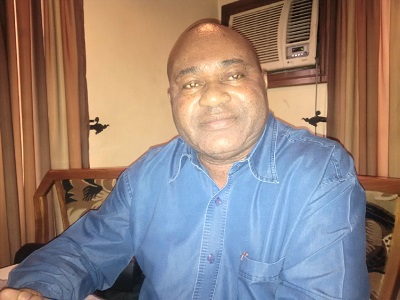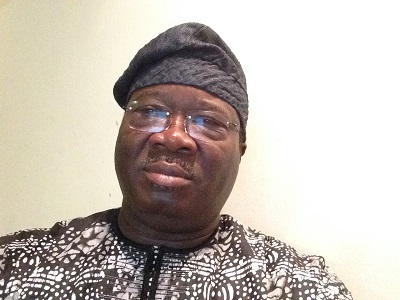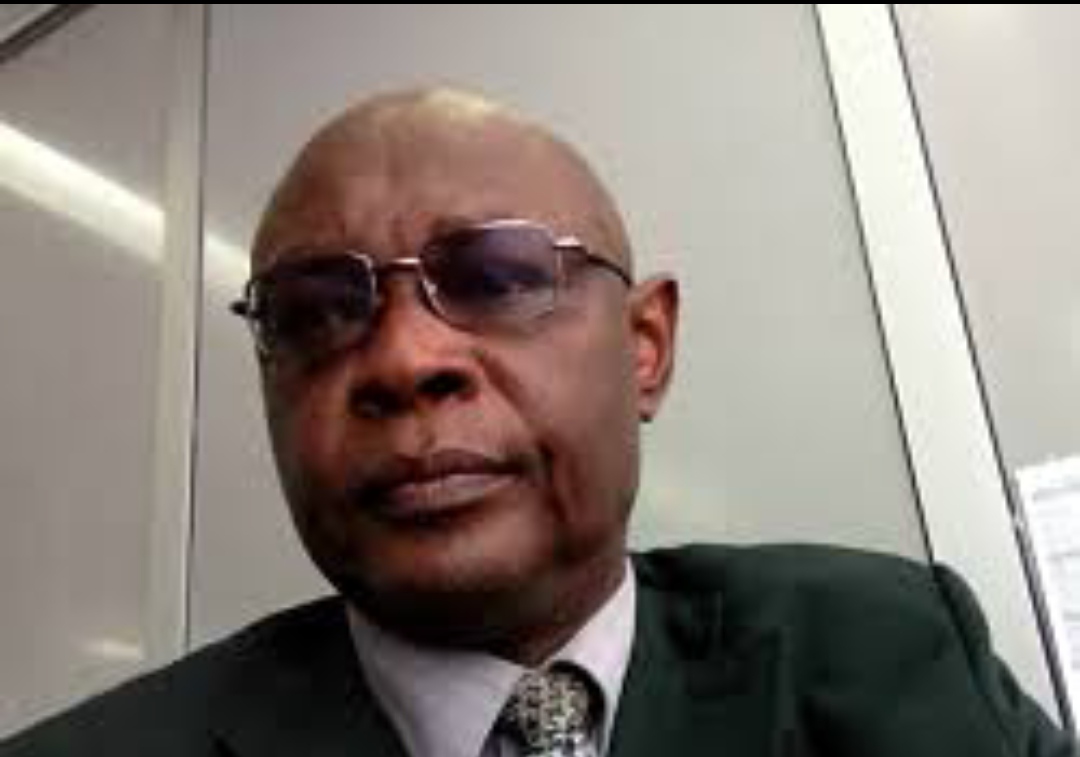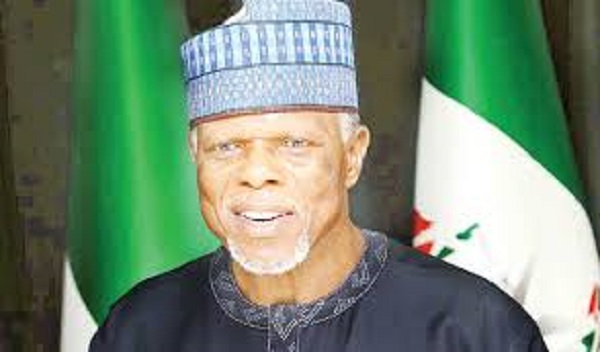I CARE INTERVIEW
Nigeria’s Maritime Sector Lacks Data To Make Forecasts – Maiguwa

By Kenneth Jukpor
Mr. Emmanuel Maiguwa is the President of the Alumni of Maritime Academy of Nigeria, Oron (AMANO). In this interview MMS Plus, he bares his mind on several pertinent issues in the maritime sector. Emmanuel highlights the challenges and prospects of maritime labour in the country and proffers strategies to address the challenges facing training institutions.
Excerpts:
The Alumni of MAN Oron has become more visible in recent times, what stimulated this and what should the industry expect from the group?
AMANO is simply the alumni of MAN Oron. The institution was established in 1979 as a nautical institute primarily to produce shipping skills for the maritime industry. In 1988 there was a decree that established the institution known today as the Maritime Academy of Nigeria (MAN) Oron and as you have with almost every higher learning institution where graduates of the school meet to form an alumni, the primary goal is to give back or contribute to the school and its academic process.
AMANO decided to be the first alumni of the institution in 2012 even though the activities and meeting actually started some years earlier. It was a gathering of some old students in Europe and in Nigeria. However, the body was formaly registered with the Corporate Affairs Commission (CAC) in Nigeria in 2012 and we have had three sets of executives to date.
That’s the history of AMANO, but in terms of what the public would benefit from the group, it is basically what they would benefit from the maritime sector. If we have a robust maritime industry, you have to imagine the benefits to not just those within the industry but the effects that would be felt beyond the industry.
Forming an association like this also enables the alumni or graduates who have acquired skills and experiences to give back to the Academy primarily and the industry through positions on policies and other aspects of the industry. We have a pool of all kinds of skills in the maritime industry and anyone can find an array of skills at AMANO.
What have been AMANO’s major achievements since inception in 2012?
When the alumni started, it kicked off with very few people. Engr. Jide Olagunwa was the pioneer President and he handed the body to us in 2006 after his tenure elapsed and Engr. Austin Umezurike became the President. One of the first things we did was to establish an internal structure for the body because without that, we wouldn’t be able to make any meaningful progress as a group. So, we spent a lot of time between 2003 and 2006, building that structure to a certain level where we could actually contribute to the industry.
In 2007, after the maiden convention we organized, we launched several campaigns including stakeholders’ forums. Subsequently, we have had two prominent ones at the prestigious Eko hotel in Lagos. At such fora, we discussed crucial issues bothering the nation’s maritime sector. Some of such meetings have been graced by the Minister of Transportation and some of the recommendations later evolved into policies.
We have engaged the Academy and established a Teaching Support Programme developed during the tenure of the immediate-past President, Umezurike.
This Teaching Support Programme is an avenue for members who have higher learning experience to pass knowledge to the younger ones. We want to empower ourselves with requisite knowledge to enable us make impact in the sector. We have also learnt to use the programme in a way that the Master Mariners who have spare time could contribute to the institution by offering themselves to lecture at the institution for gratis.
The alumni are aware that the Academy is having some challenges in hiring competent teachers like Master Mariners to teach the cadets. The Academy’s management is working hard to address this but there are several challenges in the bid to hire a Master Mariner as a lecturer. To be able to attract a Master Mariner to lecture permanently, the Academy must provide a better remuneration than what is obtainable by being at sea. The salary has to be sufficient but the Academy’s salary structure is under the Nigerian Civil Service structure that isn’t able to provide sufficient monetary provisions to attract Master Mariners.
Understanding these challenges, some Master Mariners in AMANO have decided to provide their services as lecturers for free as a means of giving back to the Academy. However, we are still exploring a proposal that would encourage Master Mariners with up-to-date knowledge to impact this to cadets at the Academy.
As the President of AMANO, what are the burning issues you want to address at the Academy and the entire maritime domain?
The biggest issue is human capacity development because without that, I don’t think anything sustainable can be achieved in the industry. What AMANO intends to do under my leadership with the agreement of all members is to contribute to the quality of products that come out from MAN Oron. The institution is ready to receive whatever we are offering and we are ready to provide that.
Coming back to our members, we must contribute by helping organizations like the Nigerian Maritime Administration and Safety Agency (NIMASA) in their efforts to build capacity for the maritime industry. When we are able to do that, we can discuss the other numerous issues.
One of the certainties in life is that there will always be issues but the human capital available would determine the extent to which the issues will be deliberated and resolved. So, our primary concern is to develop the human capital in the sector.
Are you perturbed about any particular government policy in the sector and would your administration also create awareness on issues like marine environment protection?
The last event conducted by AMANO featured one aspect of sustainable seas and sustainable shipping. Shipping already exists and it may be profitable, but you need to ensure it is sustainable by keeping the seas and oceans clean. We will continue in AMANO to respond to the International Maritime Organization’s (IMO) agenda every year as we did in 2020 which focused on sustainable shipping for a sustainable planet.
We strongly believe that the exercise that was done last year would help people realize that the activities at the seas and riverine areas have a strong impact on their survival even though they may not be part of the maritime sector in practice. People have to understand that there is an impact when you throw garbage bags in the seas and rivers and this kind of awareness campaign should be continuous.
There have been lots of forecasts about the Nigerian maritime industry in recent years, would AMANO also assist in proffering these forecasts and roadmaps?
There are lots of forecasts about the maritime industry but some of them lack sufficient data to give any meaningful position or postulation and I will give you an example. How do we find out how many ship chandling companies are in Nigeria today? Where do I find pockets of data collection for the maritime sector that can be used? Most of the data available in the sector are limited to oil vessel operations and container vessels that call at the ports.
So, there is a lot that should be captured into these forecasts to get a true picture of Nigeria’s maritime industry. From the website of Nigerian Ports Authority (NPA), you would see that the entire Nigerian ports have on average one million twenty-foot equivalent units (TEUs) containers annually. It is said that ships move cargoes but I’d rather say that cargoes move ships because where there is a demand for cargoes, the ships would go there; just as ships would go to wherever there is a demand for exports.
Today, Nigeria has lost her position as a maritime hub of West Africa to Togo, but that doesn’t mean that the cargoes going to Togo are destined to Togo. Most of these cargoes are coming to Nigeria and it is hard to measure the impact of the maritime sector in Nigeria without the basic data.
Nevertheless, we can clearly see where we are losing and if we have ships waiting on our waters for three weeks it is going to be three weeks of service to those ships. The ships would need water, food items, repairs, cleaning and other services that create jobs but these opportunities have moved to neighbouring ports.
When you create a good and secure environment, the crew would also change and such a country provides auxiliary services and creates job opportunities for the citizens. In Nigeria, we have a situation where ships stay in Cotonou for all these services and only come into Nigeria when it is extremely necessary. Several mooring companies have relocated to Cotonou and Nigeria is left behind.
I want to compare Nigerian ports to the Port of Long Beach in California which handles over 17million teus annually, yet you never find long queues of trucks or port access congestion that is popular in Nigeria.
Nigerian ports have sufficient depths and quays to accommodate vessels if we can improve the turnaround time for the vessels and make the anchorage safe. Right now, it is difficult to predict where we would be in the industry in ten years because of the security issues which aren’t peculiar to the industry but a reflection of the state of the country.
What’s your take on the Deep Blue project being developed by the government to address maritime security challenges in Nigeria?
Government is working on the Deep Blue Project which is something that we hope is implemented correctly so that the problem of insecurity on our waters dies. However, as we address the security threats on the waters, it is pertinent to note that pirates don’t come from the seas. They live on the shores and islands and strategize there before going to carry out their acts on the waters. If we can build our intelligence gathering system and take care of the socio-economic problems via policies and infrastructure, we can be able to say we have dealt with security issues on the waterways.





